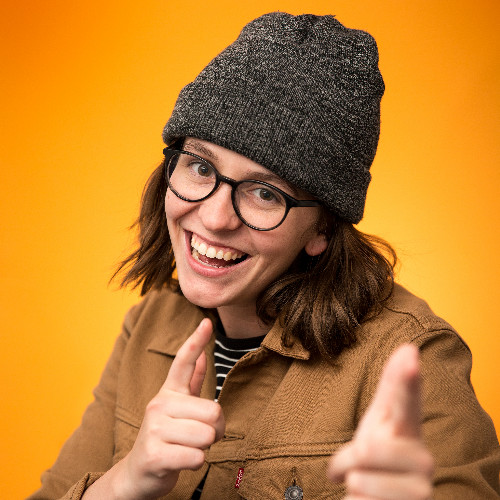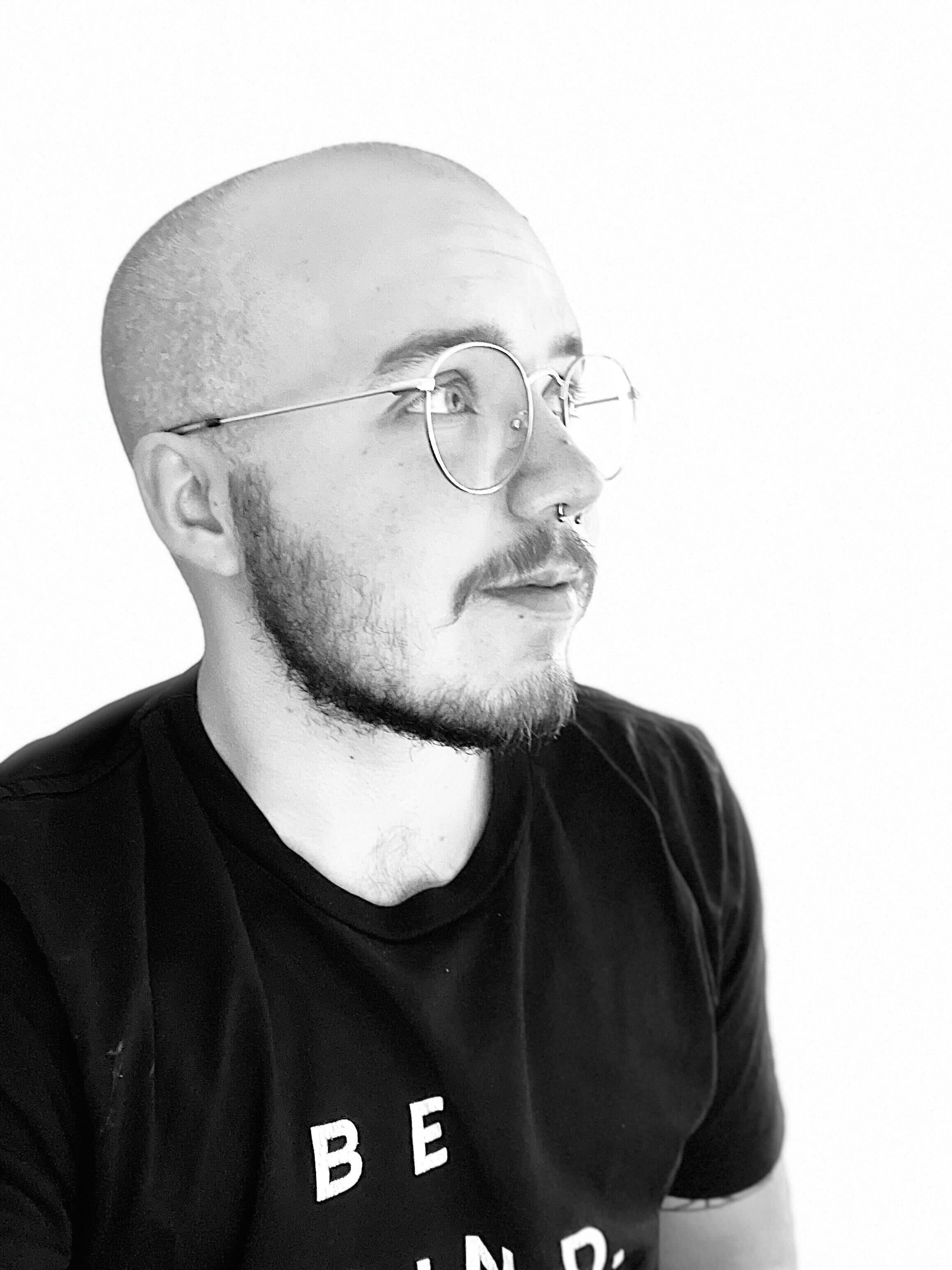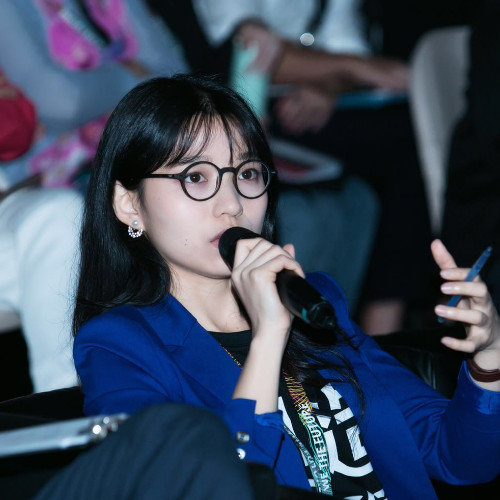How They Made It is an interview series that focuses on indie creators, exploring how they got their start and how their shows and practices have evolved since then. We hope you find inspiration in them for your own creative projects.
If there’s an indie creator who’s hit it big that you think we should feature, send an email to ashley@descript.com.
Molly Lambert’s work history includes some of the biggest names in media: she’s written for The New York Times and profiled celebrities like Miley Cyrus and Billie Eilish. But she’s also been through the spin cycle that is media layoffs…more than once. She originally started podcasting as part of her day job—more on that below—but has since struck out on her own with Heidi World: The Heidi Fleiss Story, which was called a Best Podcast of the Month by Vulture. Molly talked to us about protecting your IP and learning the secrets to self-promotion. This interview had been edited and condensed for length and clarity.

How did you start podcasting?
I was at ESPN, at a website called Grantland. People at the site were doing podcasts, and I thought I should do a podcast, I bet I'd be good at that. Emily Yoshida, who I worked with there, was like, “We should do a podcast together.” I said we should have Tess Lynch be part of it too. At ESPN there's a lot of dude stuff, so we were also like, we'll be the podcast where women talk about pop culture. [Ed: That podcast was called Girls in Hoodies.] Emily and Tess both ended up leaving Grantland, so I had a couple more solo podcasts. And then we lost our jobs.
Then I was at MTV News for like a year, and at MTV News I started a podcast called North Mollywood with Alex Papademos, and then eventually my friend Andrew Ti. But then we all lost our jobs there, too.
A classic media story.
Classic. So Emily, Tess, and I basically brought back Girls in Hoodies as another podcast called Night Call. We started out with a company that seemed like they had resources, but they were really weird about giving us the resources. We basically recorded it from home for the first year.
And then we ended up going to iHeartRadio, because there was somebody at iHeartRadio who really liked the show and wanted to bring it over there. We were not getting any promotion at the company we were at, so we were like, great. And once we got over there, they had a studio.
So do you own podcasting equipment at this point? What does that look like?
I do; I own a blue Yeti. I was like, I should just have a mic for when I'm on other shows and stuff like that. And then it was really useful during COVID, because everything was from home. That was the mic I used for Heidi World.
Obviously when you’re at Grantland and MTV, you’re making a salary. How did you monetize Night Call?
Another reason we left the first company is because they weren't really selling ads. They had promised us advertising and promised us that they would promote the show. And then they didn't, and it was getting to the point where it was like, am I going to be spending money to make this show?
So when we took Night Call over to iHeart, we negotiated to own the IP, ‘cause I had learned by then that that's what you want. Around that time we got a podcast agent; I have a book agent, and she told me that there were people who were podcast agents now. We had her come in to help negotiate the transfer of Night Call over from the previous company to iHeart, and make it so that we owned it, and they were going to give us certain things.
We started a Patreon to make money, though, because ad sales were still not amazing. And it was like, if you don't have a huge listenership, then you're not going to get the good ad sales. Well how do we build the huge listenership if we don't have promotion and ad sales? That’s where I learned how to promote. With Night Call, I was very obsessed with: I want to make podcasting my job. Because I'm coming out of magazines and, and trying to get into television, and none of these things are stable.
So then how did Heidi World come about?
Other people I knew were doing these narrative podcasts, and I thought, oh, that's a good idea. I should do that. Karina Longworth, who does You Must Remember This, is an old friend of mine, and Lili Anolik, who did Once Upon a Time in the Valley. I was like, “Would you guys be mad if I did something in this format?” And they said no.
I think also, everything I had done thus far had been collaborative. And I liked being on a team with people, but I also was like, I need to do something that's just me, that I own. Where I'm not dependent on anyone else.
I've been trying to break into television for a long time as a writer, and getting really frustrated. And so I was also like, I'm going to write something that's like a 10 episode TV show, essentially, that shows that I can do narrative, episodic storytelling. And then hopefully I'll sell it to be optioned or something.
I had experienced so much rejection, taking meetings in Hollywood with people who were like, Why should I give a f**k about you? I’d say, Cause I'm a good writer, and I'd be good at writing television. And they were like, okay, but you're not a name to me. So I don't care. And that fortified me to be like, I have to do something. Magazines are dead. There's no work there. I have to stay in podcasting to have a career of some kind at this point.
And then pitching to podcast people was also very demoralizing. But at that point I was kind of like, these people don't know what they want. You just have to give it to them and be like, You want this, actually.
That’s something you definitely learn, working for a long time in a creative industry. You can’t take the opinions of the money people too seriously. You just have to believe in your project creatively, and keep going.
All of these industries are completely in chaos. They're not spending money in a way that makes sense necessarily. I wasn't confident that the show was gonna do well; I was truly just like, I have to make this thing. Hopefully other people will like it, but it's the thing that's in my brain, and it has to come out.
I'm very stubborn. That's definitely a part of it: I refuse to stop.
You said you’d learned a lot about promotion on Night Call—what did you do for Heidi World?
I did something I had never done before: I hired a publicist. I had asked around; I was like, what did other people do to get their shows going? And I found out other people had hired publicists. So I used some of what I got paid for Heidi World to hire publicists out of my own pocket.
I saw that it's not just whether the show is good. You have to promote it to people, and get it in front of people. I started a Patreon. I did some bonus episodes and stuff like that. And then I asked my podcast agent to help me get booked on any show that people actually listen to. I reached out to everybody I knew that had podcasts to be like, hey, I'm promoting this show. Can you have me on to promote it?
What advice do you have for podcasters who are just starting out now?
It depends on what you want from it. I think that a lot of people do it thinking, it'll be so easy. Podcasting is like porn that way—everybody's like, anyone can do it. No. You have to be good at it.
I do think it's great that you can just set up at home and make stuff. My advice would be to start a Patreon and start making something and get good at making it. And refuse to stop.






%20(1).JPG)






















.png)



